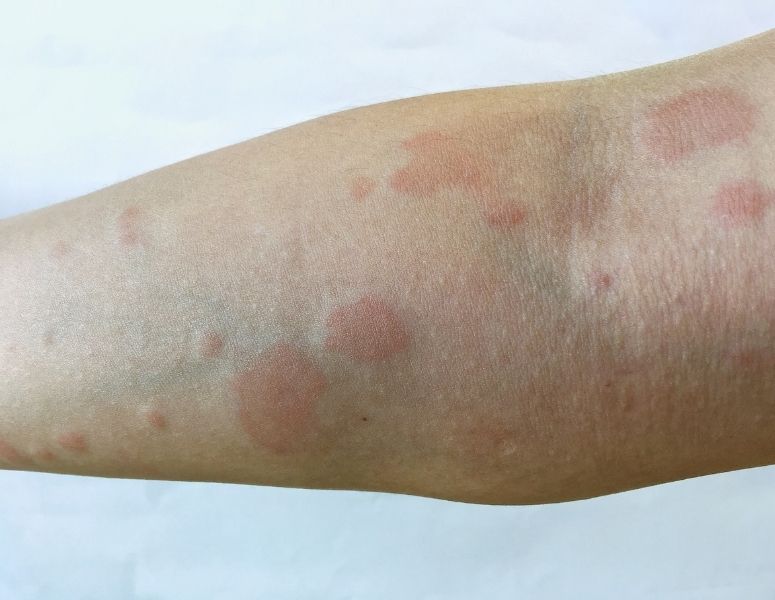EXPLAINER: What are autoimmune diseases? Who are at risk for these diseases?
What do President Rodrigo Duterte, Kris Aquino, and Selena Gomez have in common?
They have once revealed that they suffer from some form of autoimmune disease, which also affect about 4.5% of the world’s population.
During his state visit in Russia in 2019, President Duterte said in his speech to the Filipino community that he has myasthenia gravis, a chronic autoimmune neuromuscular disease that causes weakness in the skeletal muscles, which he claims he inherited from his grandfather.
Actress and TV host Kris Aquino revealed in 2018 that she was diagnosed with an autoimmune disease called Chronic Spontaneous Urticaria, a serious, chronic and distressing skin condition that is difficult to diagnose and manage. Aquino recently gave an update about her health and said she has a “long battle” ahead of her.
Singer and actress Selena Gomez has openly shared her journey in battling lupus, an autoimmune disease that commonly affects the skin, kidneys, and joints. The story about her life-saving kidney transplant in 2017 inspired many, as her best friend Francia Raisa was her donor.
One often hears the term “autoimmune diseases,” but what are they exactly?
According to Harvard Health, the term autoimmune disease is used to describe conditions in which the body’s immune system—the body’s defense system against viruses, bacteria and other invaders—is thought to be involved in causing or perpetuating illness.
There are about 80 autoimmune conditions that affect millions of people worldwide. Among the most common include:
- Rheumatoid arthritis
- Lupus
- Sjögren's syndrome
- Multiple sclerosis
- Celiac disease
- Type 1 diabetes
- Alopecia areata
Some of these autoimmune diseases are also among the common forms that are seen locally in the Philippines, Dr. Evan Silverio Vista, associate professor in Internal Medicine-Rheumatology at St. Luke’s Medical Center and College of Medicine in Quezon City and BGC, Taguig, told PhilStar L!fe. But these diseases are not as commonly seen similar to lifestyle diseases like hypertension and diabetes, he said.
When someone is diagnosed with an autoimmune disease, it means one is facing a problem regulating one’s immune system, which, according to Vista, is mainly brought by production of “auto antibodies” that attack specific organs in the body which causes unabated inflammation.
Some autoimmune diseases just strike a single organ like the thyroid gland or pancreas, while there are others that attack multiple organs systemically such as joints, skin and blood vessels.
What causes autoimmune diseases?
To date, researchers have not yet established the direct cause for the development of autoimmune disease.
“Unlike certain hereditary diseases, patients with autoimmune disease could be carrying susceptible genes and have several triggers present in the environment that promotes a full-blown condition,” Vista said.

There are also certain risk factors that increase the chances of developing autoimmune diseases aside from genetics, according to Johns Hopkins Medicine. These include:
- Weight — Being overweight raises the risk of developing rheumatoid arthritis or psoriatic arthritis.
- Smoking — It has been linked to a number of autoimmune diseases like lupus, rheumatoid arthritis, hyperthyroidism and multiple sclerosis.
- Certain medications — Researchers found that certain blood pressure medications or antibiotics can trigger drug-induced lupus, while specific medications used to lower cholesterol can trigger statin-induced myopathy.
What are common autoimmune disease symptoms?
With the varying types of autoimmune diseases, its symptoms also depend on the type of illness one may have.
According to Vista, symptoms could vary from the mildest skin rash to a severe form of fatal blood clots. With this, diagnosis can be also difficult as the symptoms could mimic many common conditions like usual infections and even allergies.
Who are at risk for autoimmune diseases? Is it true that women are more likely to get them?

“Patients who have a strong family history of autoimmune disease are among the highest risk to develop this condition,” Vista said.
He added, “The age group affected are usually young adults to middle age, unfortunately in their most productive years causing significant socio-economic and caregiver burden.”
Studies have reported that autoimmune diseases are more likely to afflict women. The US National Institute for Health named autoimmunity a major women’s health issue as these diseases strike women three times more often than men.
“Many population studies have reported that systemic autoimmune disease are mostly seen among women, with lupus, the prototypical systemic autoimmune disease, showing a ratio of 9:1 to the detriment of female sex,” said Vista.
Do people with an autoimmune disease have a higher risk of developing serious illness from COVID-19?
In one of Aquino’s recent health updates, she said the many complications brought by her autoimmune disease, including being immunocompromised, poses a major challenge for her during the almost two-year COVID-19 pandemic.
Vista said the immune dysregulation (which occurs when the body can’t control or restrain an immune response) seen among patients with autoimmune disease “inherently makes them susceptible to microbial infections, including viruses such as the SARS COV2, the culprit of the current pandemic.”
“This is further aggravated by the numerous immunosuppressants and immune modulators a patient takes for the long term to control systematic inflammation thereby causing them to be prone to more severe and recurrent infections,” he explained.
What are the most important things that people should know about having an autoimmune disease?
Vista emphasized that persons with autoimmune disease can lead productive, meaningful lives. Early diagnosis is key, he said, as this prevents end-organ complications.
“Having an autoimmune disease is not a death sentence and many longitudinal studies have estimated the life expectancy to reach similar to the general population with optimum treatment
“By keeping the disease inactive, we do away with prolonged immunosuppression and would only require continuous disease monitoring,” explained Vista, who also noted the importance of doctor-patient relationship in the successful outcomes for patients.
“We could empower patients by learning fully about their condition and setting expectations. They would be able to control the disease and not the other way around,” he said.


